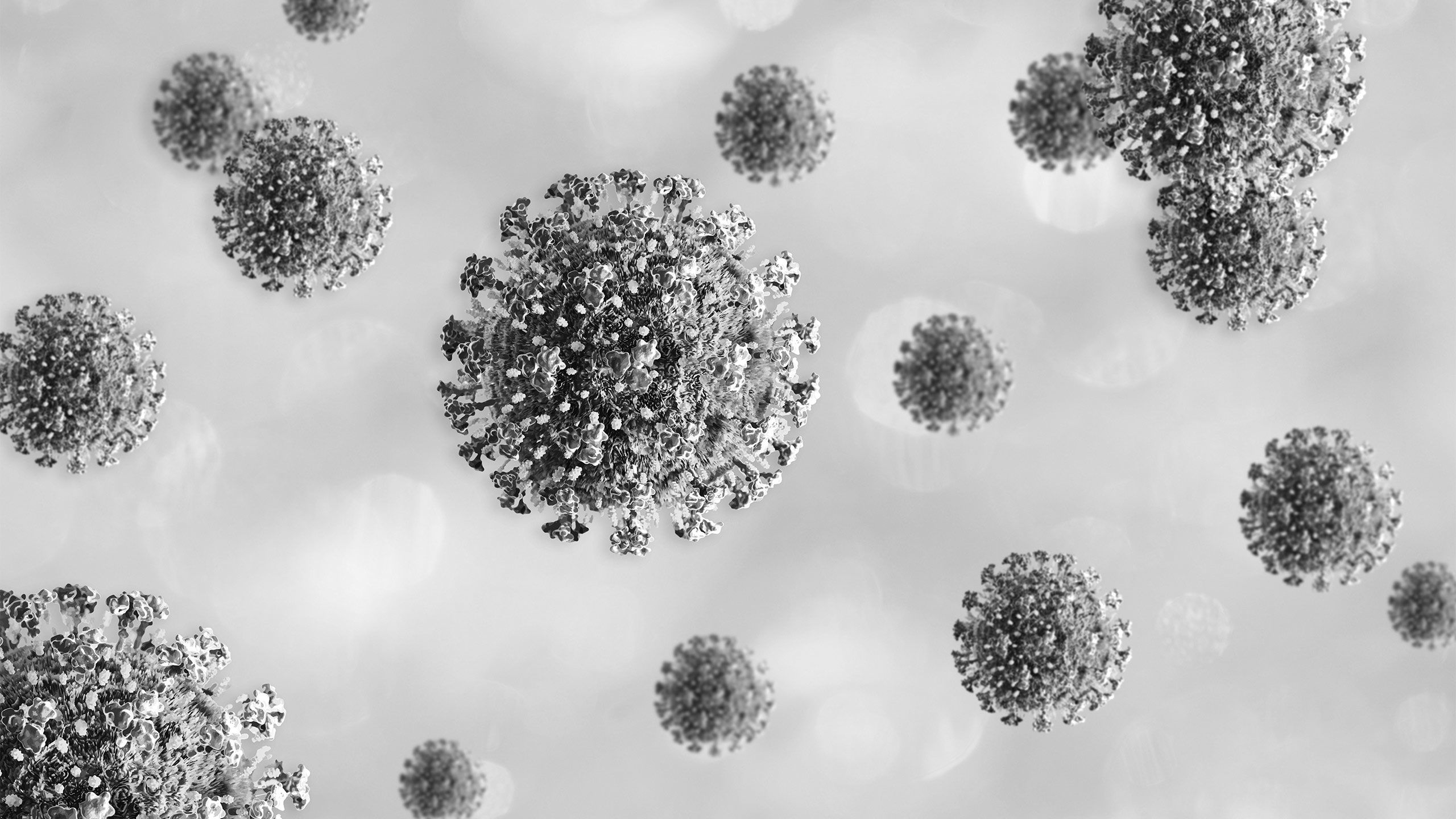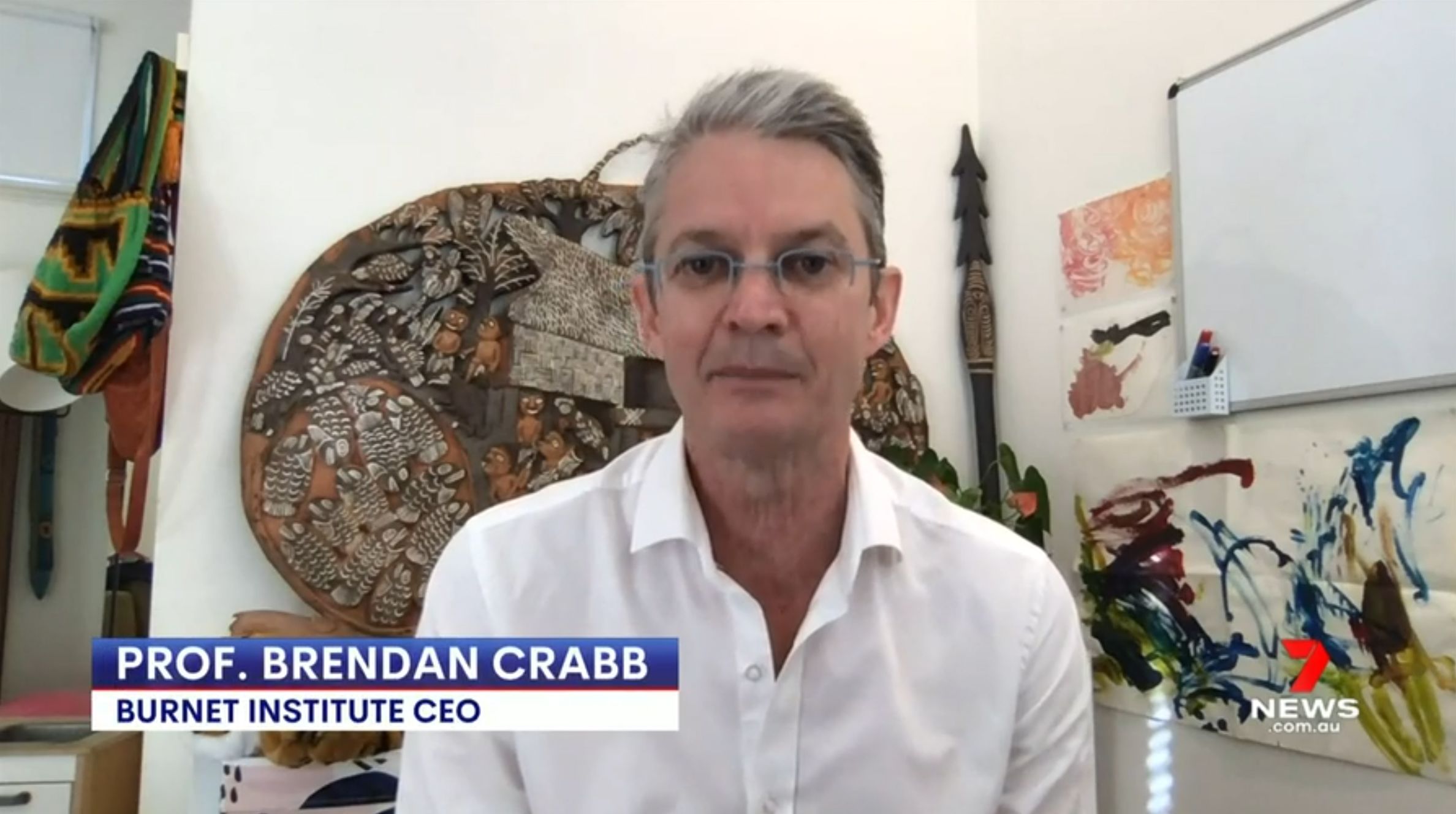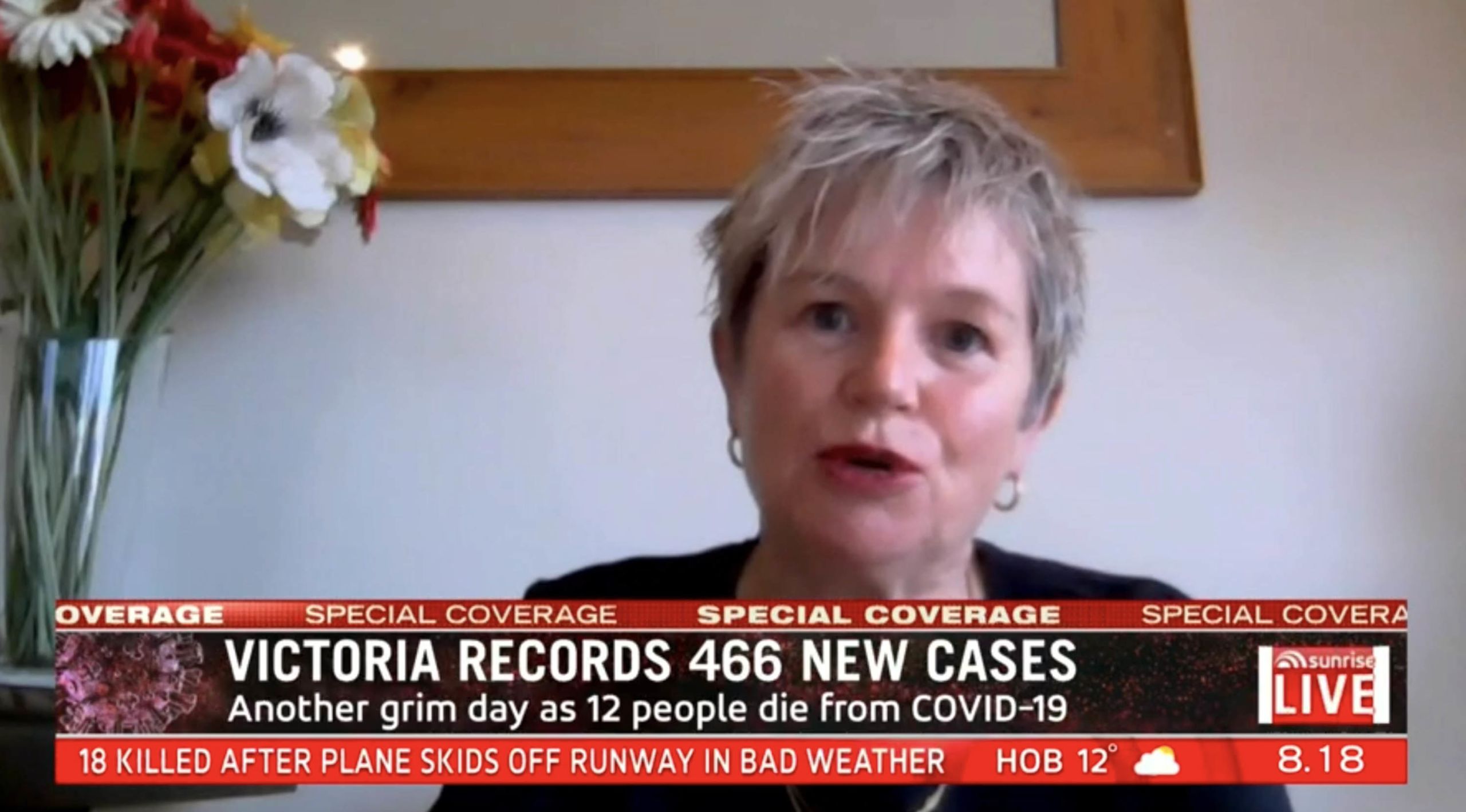Burnet response to COVID-19
It's in our DNA

Since the start of the HIV epidemic in the 1980s, Burnet has continued to build and strengthen our research and public health capacity in the areas of major global infectious diseases.
Now, we are supporting the COVID-19 response across many areas – from rapid diagnostic tests and vaccine development to public health research and advice.
When the World Health Organization declared COVID-19 a global pandemic on 11 March 2020, Burnet Director and CEO Professor Brendan Crabb AC already had a clear understanding of the fundamental challenges facing Australia, and how Burnet was well positioned to assist.
The central dilemma was, and remains, how to lockdown as stringently as possible to suppress or eliminate the virus, without causing serious and lasting damage to the Australian economy and ‘the social contract’.
To this end, Professor Crabb began collaborating with leading scientists, clinicians, researchers, policymakers and communicators to fine-tune Australia’s response, before joining the National COVID-19 Health Research Advisory Committee as one of Australia’s medical leaders feeding information to the Commonwealth’s Chief Medical Officer and to National Cabinet.
Much of Australia’s initial success in suppressing the virus, Professor Crabb said, can be attributed to that ‘Team Australia’ approach.
“Prime Minister Scott Morrison and the premiers functioned, to a large extent, as a team. And the most important thing they did, secondarily to that, is they listened to experts,” he said.

Burnet Director and CEO, Professor Brendan Crabb on Seven News
Burnet Director and CEO, Professor Brendan Crabb on Seven News
“We’re seeing some countries where that hasn’t happened... There’s no Team USA. There’s no Team UK. And that’s their failing.”
Burnet, meanwhile, rapidly transitioned its research output to tackle the pandemic, something Professor Crabb believes is in its DNA.
“Burnet’s origins are from an infectious diseases hospital, the Fairfield Hospital in Melbourne ... we became ‘famous’ on the back of the world’s previous major epidemic/pandemic, and that was HIV and AIDS. We still work on HIV and AIDS, and if you interview me in 30 years’ time, I suspect we’ll still be working on COVID-19, because it’s the next really big thing.”
Like HIV and AIDS, Professor Crabb said that tackling COVID-19 requires a two-pronged approach – technical solutions, like vaccines and medicines, and behavioural ones, like physical distancing, hand washing, mandatory quarantining and wearing masks.
“Burnet is involved in all facets,” Professor Crabb said, “both of tool development, and influencing social and community behaviour to influence uptake. The main people that are going to prevent COVID-19 are the public themselves. There’s a social contract that needs to be developed. And that’s a science.”
Public and media attention has zeroed in on tool development, especially the search for a vaccine, which includes Burnet’s own research, led by Professor Heidi Drummer. But Professor Crabb believes a vaccine is likely to take 12 to 18 months to develop from scratch, and when it arrives there is a possibility that there won’t be enough doses, and that public perception issues around the use of vaccines will hamper uptake.
That’s why he and Australia’s key decision- makers are hungry for information about the second part of the equation – the social contract.
“We know that we need to have the mechanisms in Australia to keep the virus very low or to eliminate it altogether without going into lockdown again. But that does not mean that it’s going to work,” he said.
The question, Professor Crabb said, is about what behaviours effectively combat COVID-19, but also about how rates of compliance with those ‘COVID-safe’ behaviours can be pushed upwards.
“If the public is asked by governments: ‘These are the things we want you to follow now’, what does it take for people to actually follow those [directives]? What’s the science behind influencing behaviour?”
Burnet quickly identified this gap in clear messaging and evidence-based advice influencing public behaviour, especially the test-treat-isolate strategy. A new flagship program, Know-C19, was launched and brought together the Institute’s leading COVID-19 researchers. The Optimise Study began, led by Professor Margaret Hellard AM, focusing on two key intervention methods to restrict the spread of the COVID-19 virus – isolation/quarantine and physical distancing.

Professor Margaret Hellard AM is among the Burnet researchers who have appeared prominently in the media since the pandemic began.
Professor Margaret Hellard AM is among the Burnet researchers who have appeared prominently in the media since the pandemic began.
Professor Crabb was an early advocate of the initial nationwide lockdowns enforced in April, another learning from past epidemics and pandemics.
“Your best strategy is to act very fast and strongly. You don’t wait until you’ve got ‘all your ducks in a row’ because it’s too late. It’s still evidence-based, but it’s not evidence-based about COVID-19. In fact, we didn’t know much about COVID-19. What we did know is what worked for other epidemics,” he said.
So – will the world ever win when it comes to suppressing the virus, and protecting vulnerable people? For Professor Crabb this is a question that invites more questions.
“Science will solve this problem. There’s no doubt about that. We will end up with top class therapies and preventions, hopefully the main one being a super effective vaccine,” he said.
“But what human price will you pay? What societal price will you pay? What economic price will you pay? And those are interconnected things. The pandemic has happened. It’s having a devastating effect. The question is, what’s the price that we will have to pay for that victory?”
Please donate to support Burnet's COVID-19 response.
